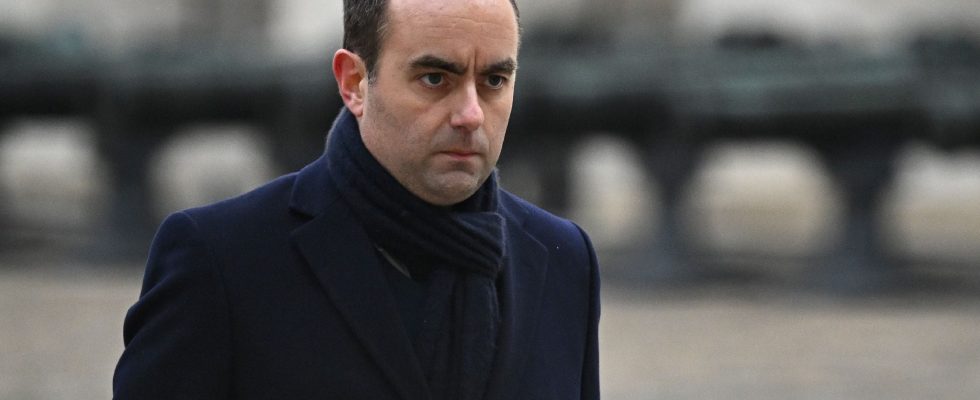The Israeli army bombed Khan Younes this Monday, the epicenter of the clashes in southern Gaza. During the night, witnesses reported deadly Israeli strikes towards Khan Younes, and even fierce fighting between soldiers and Hamas fighters. Outside Gaza, in northern Israel, near the border with Lebanon, anti-rocket sirens sounded overnight, according to the Israeli army.
Information to remember
⇒ Sébastien Lecornu meets families of Hamas hostages this Monday in Israel
⇒ The heads of Israeli and Palestinian diplomacy received in Brussels
⇒ Hezbollah fighter killed in Lebanon in strike blamed on Israel
The French Minister of the Armed Forces in Israel
Sébastien Lecornu meets this Monday in Israel with families of Hamas hostages, before meeting with Israeli Prime Minister Benjamin Netanyahu, Defense Minister Yoav Gallant and several members of the war cabinet to discuss the situation in Gaza and the risks of escalation in the region.
The discussions will focus “on the situation in Gaza, on efforts to obtain the release of French hostages and missing persons, on the protection of civilian populations and the humanitarian support provided by France” but also on efforts to avoid a “regional escalation, particularly in Lebanon and the Red Sea”, where Yemeni Houthi rebels are carrying out attacks against ships, the French minister’s office said on Sunday.
The heads of Israeli and Palestinian diplomacy in Brussels
European Foreign Ministers, for their part, will receive their Israeli and Palestinian counterparts separately this Monday in Brussels, to listen to them and try to convince them of the need for a political solution in Gaza and the West Bank. The head of Israeli diplomacy Israel Katz will meet EU ministers in the morning, then it will be the turn of Palestinian Authority minister Riyad al-Maliki in the afternoon. No meeting between the two men is planned.
No decision expected, but for Europeans, the simple presence of the two men on the same day in Brussels is already a “strong symbol”, in the words of a diplomat. The statements of the head of European diplomacy Josep Borrell, who accused Israel on Friday of having “financed” Hamas in an attempt to weaken the Palestinian Authority of Fatah, could however be a source of tension. “We believe that a two-state solution must be imposed from the outside to bring peace,” he insisted from Valladolid in Spain.
The heads of EU diplomacy will also meet, during a working lunch, their Egyptian counterparts Sameh Choukry, Saudi Faisal bin Farhane and Jordanian Ayman Safadi, as well as the secretary-general of the Arab League Ahmed Aboul Gheit. So many countries and organizations that could play an important role – both economic and political – after the war.
Lebanon: Hezbollah fighter killed
A strike blamed on Israel killed a Hezbollah fighter in southern Lebanon on Sunday, a source close to the Lebanese movement told AFP. A strike on a car “killed a member of the Hezbollah protection team”, a security official told AFP, adding that a senior commander of the Lebanese movement was the target of the attack, but that he “escaped death”. He was in the car behind the one that was hit, with three other people, said this source who requested anonymity.
According to the source close to Hezbollah, who also requested anonymity, a civilian who was near the vehicle was also injured. This source, however, denied that a senior commander was targeted by this strike. Later in the evening, Lebanese state media reported that the injured woman, a Lebanese woman, had died of her injuries in hospital.
Hamas admits ‘errors’ in October 7 civilian deaths
Palestinian Hamas admitted on Sunday for the first time to “errors” that caused the deaths of civilians during its attack on Israel on October 7. In a document of nearly 20 pages which delivers its “version of the facts”, Hamas assures that the “al-Aqsa flood” operation was a “necessary step” and a “normal response” to the Israeli occupation .
“Perhaps mistakes took place” in the “chaos” caused by “the sudden collapse of the security and military apparatus” on the border between Israel and Gaza, recognizes the Islamist movement. But he denies having targeted civilians, except “by accident, and during confrontations with the occupying forces”.
